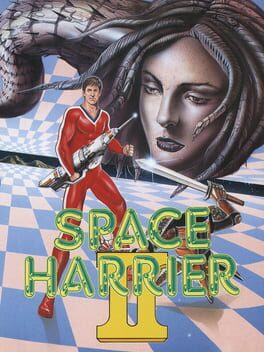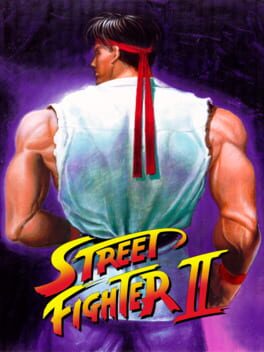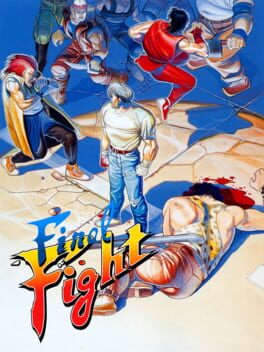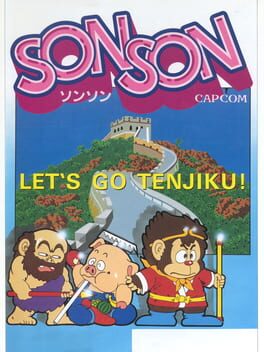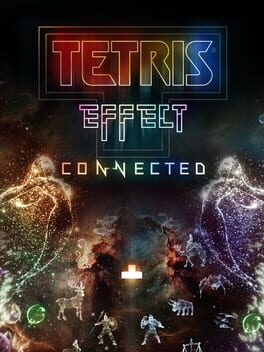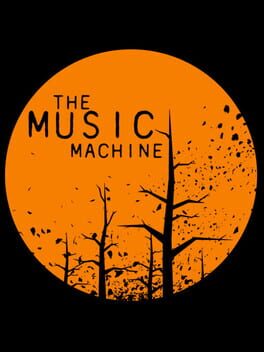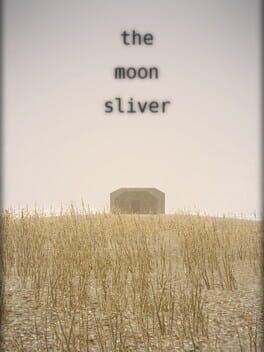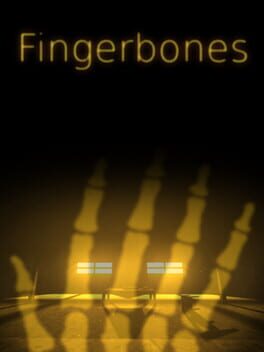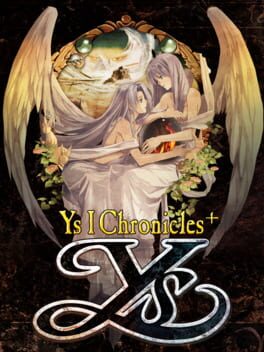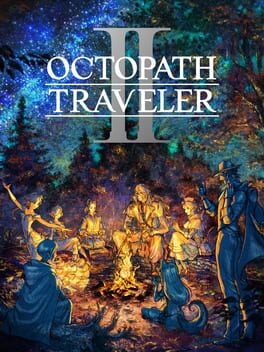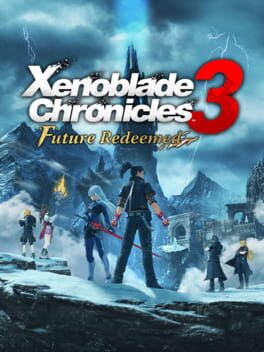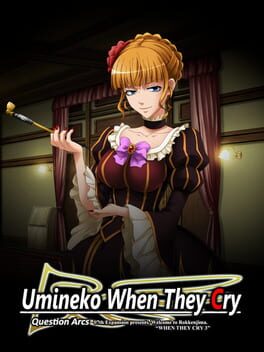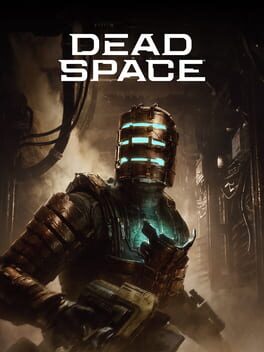VideoGameTim
BACKER
1988
1991
1989
1984
Breath of the Wild never did really blow me away. I certainly enjoyed it, and it's approach to open-world exploration was well executed - even if the rewards for doing missed the mark. I did not grow up with the series, and I initially wasn't even going to pick up Tears of the Kingdom until the very final launch trailer pushed me to just enough interest - and man am I glad I did.
As a direct sequel to BotW, TotK set out to improve upon every single aspect of its predecessor in every conceivable way, and I will do my best to break down each one of those things with as little spoilers as possible.
First off, the absolute biggest factor for me here was the exploration and more specifically, the Depths. An entire unmapped underground section that matches the size of Hyrule that is shrouded in darkness. As you explore it, you will find light-roots that not only serve to light up the surrounding area, but fill in the map as well. You better believe I got every last one for the satisfaction of filling in my map completely. There's a lot of great rewards, creepy monsters, and fun encounters to be had down there as well so it's absolutely worth dedicating time to.
Similarly, a handful of sky islands were also added flying above the surface. While their total surface area would probably make up around ~10% of the game map, there's a lot of cool things to be found up there as well. For the main world, there are certainly some new changes since BotW, however I admit the 6 years since the game's release has helped it feel fresh in my own mind.
One other thing they did to really spice up exploration is via the Fuse ability I mentioned earlier. Fuse allows you to stick anything you want onto your melee weapon, your shield, or your next arrow. If you want to attach a silver Lynel horn to your weapon to ramp up the damage, or a spring to your shield to bounce enemies who attack you away, or Keese wings to your arrow to make it fly further, these are all new possibilities. This is REALLY important because it fixes one of the biggest exploration problems I had with BotW. Due to weapon durability, it very quickly never felt worth it attacking monster camps because your reward was inevitably just a new weapon to replace what you probably just broke. But now, killing the monsters is just as much of a reward because their parts aren't relegated to just cooking elixirs - they improve your weapons too.
Another big factor for me is the shrines, and by extension your new powers that can be used to solve them. Shrines were present in the first game, but you didn't really have very interesting abilities that you could use to solve them outside of stasis. In TotK, your Ultra Hand, Recall, and to a lesser extent Fuse and Ascend are an excellent set of tools to solve them. Outside of the handful of combat-focused shrines (which usually have more creative solutions in mind), the variety of puzzles is incredible and make use of the great physics engine in the game. The Ultrahand ability also lets you make all manner of crazy contraptions from vehicles to robots to traps. It's not too cumbersome, especially when it comes to recreating past contraptions being very streamlined.
The final key aspect I want to touch on here is the story. If you remember the BotW story, you'll have to remind me because there wasn't too much interesting going on (and a lot of it was obscured in easily missable cutscenes). TotK's plot is a massive leap forward in quality. There is a lot of mystery to it, and while there are collectible "memory cutscenes" here too, they are very easy to find and tell a pretty interesting tale that features a couple of wild ideas. Most of the boss fights also end up being pretty fun (save for one), and a final boss that I could see comfortably sitting among my all time favourites.
Now all that is to say, it is by no means without flaws. My biggest gripe is the sort function missing an alphabetical sort which makes sifting through your materials often difficult if you are looking for something specific. The other main gripe I have would be that this is a late-generation Switch game so performance struggles at times. Still, despite these flaws it is absolutely a game worth experiencing, I'd dare say even worth skipping BotW for if you haven't played it.
I could probably continue to go on about how much I enjoyed Tears of the Kingdom, but I will probably leave it here. Never could I imagine I would be nearly doubling my playtime from BotW just finishing the main story and obsessively exploring the world, and I'll likely do a bit more of that before I am truly done. At the time of writing this, I am not sure if FFXVI, Trails into Reverie, or Alan Wake 2 are going to sweep GOTY 2023 away from TotK for me - but they are going to have to REALLY work for it.
As a direct sequel to BotW, TotK set out to improve upon every single aspect of its predecessor in every conceivable way, and I will do my best to break down each one of those things with as little spoilers as possible.
First off, the absolute biggest factor for me here was the exploration and more specifically, the Depths. An entire unmapped underground section that matches the size of Hyrule that is shrouded in darkness. As you explore it, you will find light-roots that not only serve to light up the surrounding area, but fill in the map as well. You better believe I got every last one for the satisfaction of filling in my map completely. There's a lot of great rewards, creepy monsters, and fun encounters to be had down there as well so it's absolutely worth dedicating time to.
Similarly, a handful of sky islands were also added flying above the surface. While their total surface area would probably make up around ~10% of the game map, there's a lot of cool things to be found up there as well. For the main world, there are certainly some new changes since BotW, however I admit the 6 years since the game's release has helped it feel fresh in my own mind.
One other thing they did to really spice up exploration is via the Fuse ability I mentioned earlier. Fuse allows you to stick anything you want onto your melee weapon, your shield, or your next arrow. If you want to attach a silver Lynel horn to your weapon to ramp up the damage, or a spring to your shield to bounce enemies who attack you away, or Keese wings to your arrow to make it fly further, these are all new possibilities. This is REALLY important because it fixes one of the biggest exploration problems I had with BotW. Due to weapon durability, it very quickly never felt worth it attacking monster camps because your reward was inevitably just a new weapon to replace what you probably just broke. But now, killing the monsters is just as much of a reward because their parts aren't relegated to just cooking elixirs - they improve your weapons too.
Another big factor for me is the shrines, and by extension your new powers that can be used to solve them. Shrines were present in the first game, but you didn't really have very interesting abilities that you could use to solve them outside of stasis. In TotK, your Ultra Hand, Recall, and to a lesser extent Fuse and Ascend are an excellent set of tools to solve them. Outside of the handful of combat-focused shrines (which usually have more creative solutions in mind), the variety of puzzles is incredible and make use of the great physics engine in the game. The Ultrahand ability also lets you make all manner of crazy contraptions from vehicles to robots to traps. It's not too cumbersome, especially when it comes to recreating past contraptions being very streamlined.
The final key aspect I want to touch on here is the story. If you remember the BotW story, you'll have to remind me because there wasn't too much interesting going on (and a lot of it was obscured in easily missable cutscenes). TotK's plot is a massive leap forward in quality. There is a lot of mystery to it, and while there are collectible "memory cutscenes" here too, they are very easy to find and tell a pretty interesting tale that features a couple of wild ideas. Most of the boss fights also end up being pretty fun (save for one), and a final boss that I could see comfortably sitting among my all time favourites.
Now all that is to say, it is by no means without flaws. My biggest gripe is the sort function missing an alphabetical sort which makes sifting through your materials often difficult if you are looking for something specific. The other main gripe I have would be that this is a late-generation Switch game so performance struggles at times. Still, despite these flaws it is absolutely a game worth experiencing, I'd dare say even worth skipping BotW for if you haven't played it.
I could probably continue to go on about how much I enjoyed Tears of the Kingdom, but I will probably leave it here. Never could I imagine I would be nearly doubling my playtime from BotW just finishing the main story and obsessively exploring the world, and I'll likely do a bit more of that before I am truly done. At the time of writing this, I am not sure if FFXVI, Trails into Reverie, or Alan Wake 2 are going to sweep GOTY 2023 away from TotK for me - but they are going to have to REALLY work for it.
Having played the original 2018 release, there isn't actually a ton of new things to say about Connected. The main additional draw is the multiplayer modes, which are all very unique and satisfying to play. Tetris Effect remains one of the best entries in the long running series, and I am glad we have this updated, definitive version (that also has crossplay!).
2015
Certainly my favourite of Szymanski's earlier works so far. Gorgeous visual style, while telling simultaneously a more direct narrative with more abstract themes/lore. Maybe a bit less meaningful in this way to me, but it was a nice excuse to explore a more varied collection of levels. Still, very cool.
2014
While I appreciate what he was going for with this one in terms of themes, it fell a little bit short of the mark. Even only being ~30 minutes, it felt a little bit plodding. Having the narrative text appear on screen as you walk around was a decent idea to keep players moving, but ultimately it meant there were sections where I still had to stop walking to read, or move away to make text disappear so I could read other text. In the end, notes probably would've worked better (especially considering the story).
On top of that, there were also a couple of key moments where I felt the narrative was telling, rather than showing. It would've been a lot more effective to hear sounds, rather than read about sounds for example. Still, I didn't totally hate it - it was more on the execution than the story itself.
On top of that, there were also a couple of key moments where I felt the narrative was telling, rather than showing. It would've been a lot more effective to hear sounds, rather than read about sounds for example. Still, I didn't totally hate it - it was more on the execution than the story itself.
2014
2013
Though I can't say I fully appreciate the true extent of this remake of the original 1987 title, it still holds up pretty well as the beginning of the long running series.
A rather short game (it ran me 5-6 hours), Ys I is an adventure where the main character Adol runs around fighting monsters and learns about this new land he has shipwrecked on. The combat system is a bit different than most classic RPGs where it a top-down action game that makes use of the 'Bump' system. Ideally, you try to run into enemies at an angle. This allows you to do the most damage while also avoiding the damage of a head on collision. It works pretty well, and the handful of boss fights all have their own strategies.
This release also offers a toggle between three different arrangements of the soundtrack - the original PC-98, the Complete, and the Chronicles+. While all three are pretty good, the high-quality, intense guitar soundtrack of Chronicles+ is absolutely incredible and really elevates the experience.
This is a great entry to this series and I am looking forward to continue on to the rest of them. As I mentioned before, it's really not too long so give it a go if you want to try out what an action RPG that predates even Final Fantasy feels like! Just one word of advice, if you are playing on PC ensure the refresh rate is set to 60. You will thank me by the end for not having it set to 144Hz - I found out the hard way!
A rather short game (it ran me 5-6 hours), Ys I is an adventure where the main character Adol runs around fighting monsters and learns about this new land he has shipwrecked on. The combat system is a bit different than most classic RPGs where it a top-down action game that makes use of the 'Bump' system. Ideally, you try to run into enemies at an angle. This allows you to do the most damage while also avoiding the damage of a head on collision. It works pretty well, and the handful of boss fights all have their own strategies.
This release also offers a toggle between three different arrangements of the soundtrack - the original PC-98, the Complete, and the Chronicles+. While all three are pretty good, the high-quality, intense guitar soundtrack of Chronicles+ is absolutely incredible and really elevates the experience.
This is a great entry to this series and I am looking forward to continue on to the rest of them. As I mentioned before, it's really not too long so give it a go if you want to try out what an action RPG that predates even Final Fantasy feels like! Just one word of advice, if you are playing on PC ensure the refresh rate is set to 60. You will thank me by the end for not having it set to 144Hz - I found out the hard way!
2023
While the first Octopath Traveler wasn't perfect, I thought it was a wonderful little game. The introduction of the HD-2D style, 8 little contained stories with a couple of memorable characters, a good soundtrack, and a fairly satisfying turn-based combat system. Octopath Traveler 2 improves vastly upon its predecessor in every conceivable way.
The game takes place in Solistia, a country split across two continents. Similar to the first game, you pick a starting character to serve as your MC, and wander around the world picking up your other party members and experiencing their stories. The major criticism that many people levied against the first game was the lack of party interaction. There were brief little scenes you could see if you went out of your way to watch them at taverns, but they didn't really feel connected to each other for 99% of the game. In OT2, most major story beats will have a set of banter scenes you can view depending who is in your party (and all of them are available to watch through the menu). During battle, when a party member breaks an enemy, there is also a high chance that the next party member up to attack will directly compliment them for it. Additionally, there are four pairings of the main characters who have their own little side stories together. These extra little scenes, interactions, and scenarios really help the party feel closer to each other.
From a gameplay perspective, the major new addition is the day/night system. Different enemies, different party effects, different NPCs, and even different music(!) take effect depending on the time of day, and this is brilliantly tied to the push of a button so you can freely toggle it at any time. The combat is largely the same as in the first game, complete with a job system to mix and match to your preferences. There are some other pleasant surprises too that you will come across during your travels from dungeons, to job guilds, to COUNTLESS major cities and towns that truly reward your exploration.
One other key bit of gameplay that I'd like to touch on is the design of the side quests. Each NPC that has a side quest is marked on your map, however no markers are made as to the objectives themselves. The player must use the quest givers descriptions, or often context given by nearby NPCs for hints on where you can go to complete it. While a handful of them were obtuse enough that I looked up a guide, I ended up actually taking notes to remember who wanted what and where I could potentially find it. It was honestly refreshing to have a reason to do something like that again, which made me want to complete as many of them as I could.
This game also features yet another incredible OST and since every area features a day/night version of each song, I have no doubt it's their longest. One final improvement over the original I would like to highlight is the characters. Each and every one of them is memorable and goes through a unique and fairly developed story with different stakes. They are all special in their own way, and even the one I felt goes a little too far off the deep end still ends up being really cool and memorable in its own way.
For fans of the turn-based genre, Octopath Traveler 2 is absolutely worth your time. I only left a couple of major things left undone, but my final playtime clocked in around 75 hours so there is a LOT of meat to the game. I hope they get to keep making these and maybe shake things up again in an OT3 down the road.
The game takes place in Solistia, a country split across two continents. Similar to the first game, you pick a starting character to serve as your MC, and wander around the world picking up your other party members and experiencing their stories. The major criticism that many people levied against the first game was the lack of party interaction. There were brief little scenes you could see if you went out of your way to watch them at taverns, but they didn't really feel connected to each other for 99% of the game. In OT2, most major story beats will have a set of banter scenes you can view depending who is in your party (and all of them are available to watch through the menu). During battle, when a party member breaks an enemy, there is also a high chance that the next party member up to attack will directly compliment them for it. Additionally, there are four pairings of the main characters who have their own little side stories together. These extra little scenes, interactions, and scenarios really help the party feel closer to each other.
From a gameplay perspective, the major new addition is the day/night system. Different enemies, different party effects, different NPCs, and even different music(!) take effect depending on the time of day, and this is brilliantly tied to the push of a button so you can freely toggle it at any time. The combat is largely the same as in the first game, complete with a job system to mix and match to your preferences. There are some other pleasant surprises too that you will come across during your travels from dungeons, to job guilds, to COUNTLESS major cities and towns that truly reward your exploration.
One other key bit of gameplay that I'd like to touch on is the design of the side quests. Each NPC that has a side quest is marked on your map, however no markers are made as to the objectives themselves. The player must use the quest givers descriptions, or often context given by nearby NPCs for hints on where you can go to complete it. While a handful of them were obtuse enough that I looked up a guide, I ended up actually taking notes to remember who wanted what and where I could potentially find it. It was honestly refreshing to have a reason to do something like that again, which made me want to complete as many of them as I could.
This game also features yet another incredible OST and since every area features a day/night version of each song, I have no doubt it's their longest. One final improvement over the original I would like to highlight is the characters. Each and every one of them is memorable and goes through a unique and fairly developed story with different stakes. They are all special in their own way, and even the one I felt goes a little too far off the deep end still ends up being really cool and memorable in its own way.
For fans of the turn-based genre, Octopath Traveler 2 is absolutely worth your time. I only left a couple of major things left undone, but my final playtime clocked in around 75 hours so there is a LOT of meat to the game. I hope they get to keep making these and maybe shake things up again in an OT3 down the road.
Another tremendous story in the Xenoblade universe. Set as a prequel to the events of 3, Future Redeemed ties off the core remaining threads surrounding the events in the game and for all intents and purposes, this is more Xenoblade 3 which is a win in my book.
In terms of gameplay/structure, it is very similar to the base game. There are obviously some minor differences due to lore reasons, but battles play out much the same way as you are accustomed to. The real big difference here for me is actually outside combat - in the map screen. Future Redeemed features a comprehensive checklist of all the collectibles on the map. Ether currents, Unique Monsters, Locations, Chests, etc. Furthermore, a new mechanic is also added to eventually mark unfound items of interest on the map. This is incredibly beneficial for exploration, and pushed me over the edge to have almost everything done by the time I had finished with the expansion. The "Community" feature that was a big focus in the Torna expansion is back too, and its worth setting out to try and "complete" the community.
As I mentioned earlier, Future Redeemed sets out to answer a lot of the questions left open by the base game. It does a commendable job with a cast of great characters and cutscenes that do them a great service. As always, the soundtrack is stellar too with a good mix of new and old tracks. It was a bit shorter than Torna as my almost-done-everything save file has me at 23 hours, which is still a pretty respectable length. I'm not sure if this marks the end of the Xenoblade franchise as we know it, but if it does this is as good of a sendoff as it could have gotten.
In terms of gameplay/structure, it is very similar to the base game. There are obviously some minor differences due to lore reasons, but battles play out much the same way as you are accustomed to. The real big difference here for me is actually outside combat - in the map screen. Future Redeemed features a comprehensive checklist of all the collectibles on the map. Ether currents, Unique Monsters, Locations, Chests, etc. Furthermore, a new mechanic is also added to eventually mark unfound items of interest on the map. This is incredibly beneficial for exploration, and pushed me over the edge to have almost everything done by the time I had finished with the expansion. The "Community" feature that was a big focus in the Torna expansion is back too, and its worth setting out to try and "complete" the community.
As I mentioned earlier, Future Redeemed sets out to answer a lot of the questions left open by the base game. It does a commendable job with a cast of great characters and cutscenes that do them a great service. As always, the soundtrack is stellar too with a good mix of new and old tracks. It was a bit shorter than Torna as my almost-done-everything save file has me at 23 hours, which is still a pretty respectable length. I'm not sure if this marks the end of the Xenoblade franchise as we know it, but if it does this is as good of a sendoff as it could have gotten.
While it feels a bit odd to review at this point considering it's only half the story, I'll keep it brief since it's hard to talk about without spoilers anyways.
Umineko so far has been a fantastic and unsettling murder mystery of sorts full of horrible people, great detail/world-building, and an immense build-up over the four chapters in this 'Questions Arc'. It is disturbing in many different aspects whether it's through descriptions of gore or various emotional struggles, while also being contrasted by numerous absurd and even silly moments. It has provided me with countless ideas to ponder as the true mysteries slowly unravel themselves, and I have constantly been unsure of what will happen next.
I've docked half a star only because it loses the pacing a little bit towards the climax of this first half, but I am absolutely excited to read more.
Umineko so far has been a fantastic and unsettling murder mystery of sorts full of horrible people, great detail/world-building, and an immense build-up over the four chapters in this 'Questions Arc'. It is disturbing in many different aspects whether it's through descriptions of gore or various emotional struggles, while also being contrasted by numerous absurd and even silly moments. It has provided me with countless ideas to ponder as the true mysteries slowly unravel themselves, and I have constantly been unsure of what will happen next.
I've docked half a star only because it loses the pacing a little bit towards the climax of this first half, but I am absolutely excited to read more.
2023
Dead Space might just be my favourite horror game of Gen 7. Engineer Isaac Clarke finds himself aboard a derelict planet cracker ship full of horrible monsters. A horribly oppressive atmosphere permeates the USG Ishimura and despite the vast majority of the game taking place within the ship, the environments still feel fresh and varied. It plays like an over-the-shoulder TPS where you use (mostly) a selection of mining/engineering tools with unique primary/alternate fires to dismember your foes. One other iconic feature is the ability to click in the right stick, and a virtual line is drawn along the floor showing you the route for the main story path. This is especially useful as the inventory/map screen does not pause the action either, increasing the tension.
As for what's new in this Remake, it is still familiar, yet with some new differences. Of course the visuals and loading times are vastly upgraded for the new hardware capabilities, and the game truly is gorgeous. The Zero Gravity sequences from the sequels were back-ported, and as a result not only do the original Zero-G sequences feel less restrictive, but totally new sequences were introduced. Entire chapter transitions and rooms were changed to make use of the full movement. Another feature that was brought back from 2 - Isaac speaks now! They gave him a great personality and a lot of good dialogue which really, really strengthens the story and gives some much needed context to what he has been going through.
As for other new features, additional oxygen-free areas were introduced (some of them even optional) to make better use of your suit's oxygen upgrades. A handful of side quests exploring some additional lore were also introduced that encourage exploration and backtracking throughout the ship. All of it is absolutely worth doing too.
Ultimately, a lot of care clearly went into this remake. Everything was expanded upon in a meaningful way, and as a result (unlike RE4's Remake) Dead Space 2023 IS a straight up replacement for the original. If you have the means to play/run this version, there is no reason to choose the original over it. I'm not sure if Dead Space 2 would need or warrant this level of remake, but if it does end up getting one of this quality then I'll absolutely be giving it a go.
As for what's new in this Remake, it is still familiar, yet with some new differences. Of course the visuals and loading times are vastly upgraded for the new hardware capabilities, and the game truly is gorgeous. The Zero Gravity sequences from the sequels were back-ported, and as a result not only do the original Zero-G sequences feel less restrictive, but totally new sequences were introduced. Entire chapter transitions and rooms were changed to make use of the full movement. Another feature that was brought back from 2 - Isaac speaks now! They gave him a great personality and a lot of good dialogue which really, really strengthens the story and gives some much needed context to what he has been going through.
As for other new features, additional oxygen-free areas were introduced (some of them even optional) to make better use of your suit's oxygen upgrades. A handful of side quests exploring some additional lore were also introduced that encourage exploration and backtracking throughout the ship. All of it is absolutely worth doing too.
Ultimately, a lot of care clearly went into this remake. Everything was expanded upon in a meaningful way, and as a result (unlike RE4's Remake) Dead Space 2023 IS a straight up replacement for the original. If you have the means to play/run this version, there is no reason to choose the original over it. I'm not sure if Dead Space 2 would need or warrant this level of remake, but if it does end up getting one of this quality then I'll absolutely be giving it a go.
2023
Out of the so far four re-releases that have released in 2023 thus far, RE4 was the one that initially I felt did not need to exist. The original game not only holds up super well and still looks great, but it's also available on enough platforms to make Todd Howard jealous. Yet despite all that, this remake is everything it possibly needed to be.
Building off of the RE Engine, Leon moves and handles similar to his RE2R counterpart with a new exciting parry mechanic which can be used to deflect an impressive number of different attacks (and projectiles). All the guns feel great too and are all more or less viable depending on player preferences. If I have any real complaints about the experience at all, it's the loss of cutscene QTE's (but I'm one of those weirdos).
The structure of the game is largely the same with some minor new choices to differentiate itself from the original release and keep things fresh. A couple of sections from the original game were cut or shortened, and other new ones were introduced or expanded upon in a meaningful way. The characterization has been dramatically improved as well; especially Ashley, and surprisingly the Merchant as well through new side quests. Overall, the atmosphere and tone of the game are a fair bit more serious. Leon still has his moments but the experience feels a lot less of an arcade-y action shooter with horror window-dressing and a lot more in line with what 2R, 3R, 7, and 8 have established.
I think that all goes to say, RE4R is a masterpiece not just because it feels so good and stands on its own for both new and old fans, but also because it DOESN'T wholesale replace the original. It was the only way this could have been executed properly with how widely beloved and iconic the original game is. It is a decidedly different take and I'll certainly be spending a lot more time with it (especially if they do Mercenaries right this time).
Building off of the RE Engine, Leon moves and handles similar to his RE2R counterpart with a new exciting parry mechanic which can be used to deflect an impressive number of different attacks (and projectiles). All the guns feel great too and are all more or less viable depending on player preferences. If I have any real complaints about the experience at all, it's the loss of cutscene QTE's (but I'm one of those weirdos).
The structure of the game is largely the same with some minor new choices to differentiate itself from the original release and keep things fresh. A couple of sections from the original game were cut or shortened, and other new ones were introduced or expanded upon in a meaningful way. The characterization has been dramatically improved as well; especially Ashley, and surprisingly the Merchant as well through new side quests. Overall, the atmosphere and tone of the game are a fair bit more serious. Leon still has his moments but the experience feels a lot less of an arcade-y action shooter with horror window-dressing and a lot more in line with what 2R, 3R, 7, and 8 have established.
I think that all goes to say, RE4R is a masterpiece not just because it feels so good and stands on its own for both new and old fans, but also because it DOESN'T wholesale replace the original. It was the only way this could have been executed properly with how widely beloved and iconic the original game is. It is a decidedly different take and I'll certainly be spending a lot more time with it (especially if they do Mercenaries right this time).
